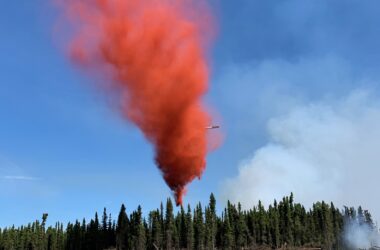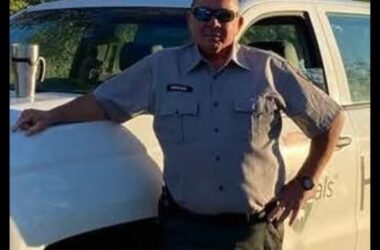The topic of invocations will be back on the table at the KPB Assembly’s next meeting on Tuesday, Nov. 7, during which the assembly will vote on a resolution which would alter their meeting policy, so that only chaplains with the borough’s fire and emergency service areas would be eligible to offer the invocation.
In the event that there is no chaplain available, the Assembly President may authorize an Assembly member or the Mayor to provide the invocation or a moment of silence or reflection.
According to the resolution, which is sponsored by Mayor Peter Micciche and cosponsored by Tyson Cox and Kelly Cooper, its primary intents are to distinguish the invocation as “non sectarian…with participation completely voluntary, and with the purpose of taking a moment to solemnize the proceedings,” as well as bring a degree consistency to the practice’s timing, i.e. to shorten it up.
According to assembly Vice President Tyson Cox, who co-sponsored the resolution, it’s more than just a simple matter of cleaning up a technicality, though, its also about eliminating the capacity for soapboxing or theatricality, which he says has become too prevalent in the invocation at assembly meetings. Which is why he sought to add the following specific language to the resolution: “over recent years drawn-out, politically and religiously motivated speeches have become more frequent than true invocations; and these speeches seldom ask for any help or support for the Assembly, the decision making process, or the Borough.”
“I wanted the statements in there because we’ve had several invocations that are people on their soapbox,” said Cox in a phone call to KSRM. “I don’t care what religion they’re from, they’ve had soapboxes and they’ve come in here. We’ve had several minute speeches to several minute sermons to people coming in and singing to reading the Lord’s Prayer. All of which I have no problem with, it’s just not that it’s appropriate for an invocation.
The topic of the invocation at assembly meetings became one of contention in 2016 when the American Civil Liberties Union stepped in to represent a trio of individuals who believed they were being unlawfully prohibited by the KPB Assembly from delivering its meeting invocations. Lance Hunt, a professed atheist, Iris Fontana of the Satanic Temple, and Elise Boyer of the Jewish faith were all denied the opportunity to offer the traditional meeting opener, and were represented by the ACLU in Alaska Superior Court in the case Hunt V. Kenai Peninsula Borough.
The borough lost the case, and since then invocations have been delivered on behalf of the Satanic Temple, the “Flying Spaghetti Monster” (a well known atheistic satire of theism), Judaism, and other non-Judeo Christian religions.
Despite the previous legal entanglement the borough found itself in over the issue of the invocation, the new resolution does seem to protect itself from legal recourse. Specifically, it cites the Supreme Court cases used in Hunt V. Kenai Peninsula Borough to establish a neutral, non-discriminatory act.
“The part to remember is, and this is what’s important, is we do not choose those people,” said Cox, emphasizing the distinction between discrimination, and the intent of this new resolution. “So, this isn’t us choosing a religion. I don’t even know who the people [delivering the invocation] are.”
In spite of the language of the resolution, it is already being interpreted as one of exclusion. An article recently published by the Alaska Watchman — a conservative blog — opens its coverage of the resolution by stating, “The days of professed Satanists and spoof religionists offering opening “prayers” at the Kenai Borough Assembly meetings may finally come to an end.” While may be, in part, an outcome of the resolution, it is not the stated intent by those who sponsored it (Mayor Micciche, Tyson Cox, and Kelly Cooper).
Adoption of the resolution will be voted on this week at Tuesday night’s assembly meeting scheduled for 6 p.m. at the Betty J. Glick Assembly Chambers in Soldotna.






